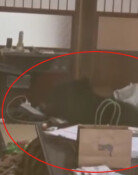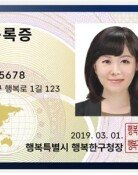Lawmakers who take benefits using their status
Lawmakers who take benefits using their status
Posted April. 28, 2015 07:17,
Sung Wan-jong, late chairman of Keangnam Enterprises, revealed explicitly the cozy relationship between politics and business. He used his status as a lawmaker for his own business. As a member of the national policy committee of the National Assembly, he appeased and pressed financial regulators and banks in 2013 when Keangnam Enterprises was under restructuring. He asked Kim Seok-dong, the then head of the Financial Services Commission, to provide funds to construction companies in the committee meeting in 2012, acting as a major shareholder of a construction company, not a representative of the people. Many lawmakers own or are directly related to businesses. Many of them are like Sung apparently.
Rep. Kang Seok-ho of the ruling Saenuri Party is a practical owner of the Samil Group which runs a logistics and construction business. He served as a secretary for the land, infrastructure and transport committee, which is a standing parliamentary committee directly associated with his own business. Rep. Lee Sang-jik of the main opposition New Politics Alliance for Democracy who was president of Eastar Air until 2012 made more requests for supporting the development of Saemangeum and Gunsan Airport than his constituency (Wansan B, Jeonju, North Jeolla Province). Eastar Air is based in Gunsan and its affiliate is a developer of Saemangeum.
There is a blind trust system which is to prevent public officials such as lawmakers from using their position to the benefits of their companies, but it is useless. The Public Service Ethics Act mandates a public official who holds stocks worth 30 million won (27,940 US dollars) or over to put them in a blind trust and dispose of them within 60 days. However, seven out of the lawmakers who are supposed to place their securities in a blind trust still hold their securities. It is because they can hold them indefinitely unless they are not sold. Since the beginning of the 19th National Assembly in 2012, no securities in a blind trust have been sold.
Some lawmakers like Sung use a trick filing a lawsuit. The Kim Young-ran anti-corruption act passed the National Assembly in March this year. However, it became meaningless as the conflict of interest provisions which prevent public officials from benefiting themselves or their family by using their status and power were taken out from the act.
Michael Johnston, a US political scientist, classified Korea as elite cartels in the category of corruption. The networks of politicians, officials, the presidential Blue House, and military figures maintain power and seek benefits. At the top of corrupt cartels is the cozy relationship between politics and business. The Park Geun-hye administration called for anti-corruption war and it boomeranged back. But it should not stop there. Unless politicians reform themselves, the people have to judge them.







